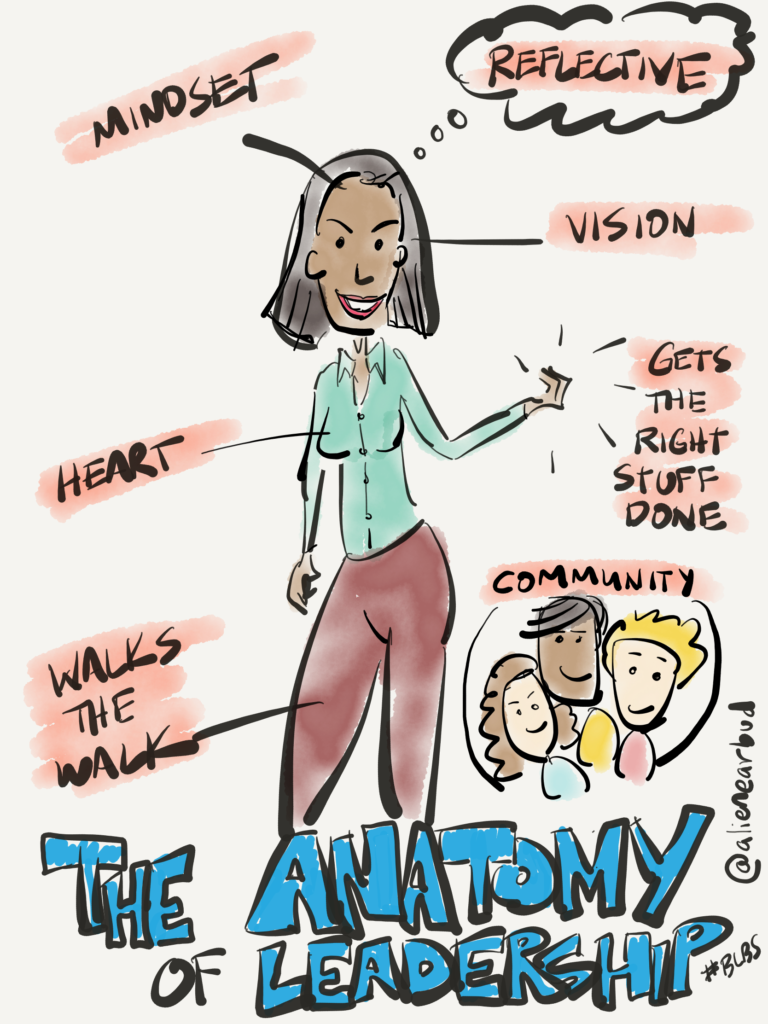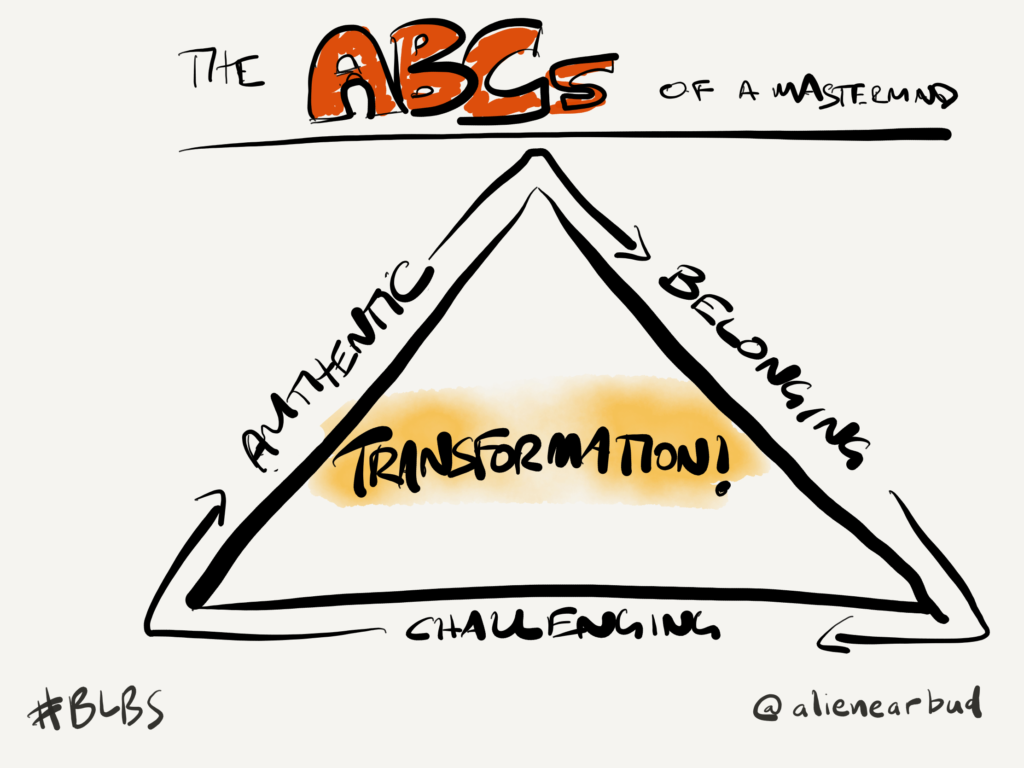The other day I was surfing the internet and found myself on a page that sold very interesting (and tiny) human anatomical models. This idea inspired me to answer the question, “What makes a good leader?” by drawing a principal and identifying the characteristics that make her effective in her role.
That picture is below as well as a few thoughts and useful resources that will help you build your leadership skills in these seven important areas.

The anatomy of effective school leadership
Mindset. Great leadership starts here. If you don’t believe in your ability, how do you expect others to believe? We all suffer from the imposter syndrome, but don’t let that hamper your effectiveness. The key to getting your mindset right is to renew your mind daily. Figure out a routine or ritual that is first and foremost for you, and sets you up to serve those you lead.
A time of solitude and contemplation works well for me. I also journal each morning exploring a variety of topics. Finally, I read something inspiring that will nurture my spirit.
This morning routine sets my mindset and tone for the rest of the day, but the work is not done. A mindfulness practice helps me note what is happening internally and externally (and when I’m off track), so it’s easier to bounce back.
My favorite book on mindset is The Inner Game of Tennis.
Vision. Seneca had this to say on vision, “If one does not know to which port one is sailing, no wind is favorable.” With your mind in the right place, it’s important to know where you are going.
Vision should be exciting. Experience has taught me that three years is the perfect amount of time to work on a vision. It’s not too close that you don’t have enough time to accomplish something meaningful and three years isn’t too far away that it lacks any urgency.
A strong vision can move mountains.
If you could use help crafting a meaningful vision, these four steps will help.
Heart. Good leaders have compassion. Compassion for others and compassion for self. The strongest leaders have done the hard work of developing their emotional intelligence. Not only can they “read the room” and intuitively understand what is going on with others, they are able to “check in” with themselves and understand how their emotions and thoughts are impacting their performance.
What we are really talking about here is empathy, which is the foundation of service as well as effective communication.
If you’re struggling with the heart piece, maybe you need a reboot?
Gets the *right* stuff done. Don’t wear your busyness as a badge of honor. Everyone’s busy, you’re not special in that sense. If you want everyone to know how busy you are, that just tells me a) you need to work on your ego and b) you lack priorities and boundaries.
Although it feels great to knock items off your to-do list (I enjoy it too), that doesn’t mean you are actually creating value or completing the right tasks. It just means you completed an item on your to-do list.
There is a difference between deep work and shallow work. Once you get clear on this concept, you’re one step closer to getting the right stuff done.
A counter-intuitive step that can get you great mileage on this concept is creating a “avoid at all costs” list. If you know what you shouldn’t be doing, then you’re more likely to work on what you should be focused on.
The best work on deep work is called Deep Work.
Walk the walk. This is about trust. Do what you say you’ll do. Apologize and own it if you don’t. Walking the walk is about consistency, follow through, and being connected to the work. School leaders can connect with the work by teaching a class from time to time, serving lunch, or engaging with any task that a principal usually doesn’t do, but occurs at some point within a school day’s operations.
Reflective. Great leaders are highly reflective. According to Ryan Holiday, “Progress requires review. It requires examination. It requires time for reflection and deliberation.”
David Peterson created some helpful reflection questions that I have adopted. I originally learned these questions during his powerful session, “Paradoxes of Leadership” at the World Business Executive Coaching Summit in 2019.
On a daily basis ask yourself:
- What new thing did I do today?
- What worked well? What didn’t?
- What did I learn?
- What one thing will I do differently tomorrow?
Since I’m posting this around the start of a new year, here are some helpful annual questions David created:
- Who do I want to be? What values do I want to live by?
- What inspires me and fuels my passions?
- Am I living my life the way I want to? Where do I stand relative to what truly matters?
- Am I on the best path to become the person I truly want to be?
- Where do I want to be a year from now and how do I get there?
Community. The best leaders do not lead in isolation. Community is essential to your success as a leader. Isolation is a choice and if you are waiting for your district to develop you, well … you’ll be waiting a long time.
You know you’ve found great community support when they cheer you on toward success no matter what, but they aren’t afraid to tell you when there is spinach in your teeth.
Community also helps you eradicate blind spots. Everyone has them, it’s normal. The question then becomes, “What are you doing about the blindspots which hold you back from your true potential?”
The philosopher Alain de Botton said, “The chief enemy of good decisions is a lack of sufficient perspectives on a problem.” You have to open up and surround yourself with a trusted board of advisors if you plan to move past your blind spots.
You can go out there and build a powerful community on your own, but if you would benefit from joining a group of innovative and driven school leaders from around the world, then we welcome your application to the mastermind. Join a cohort of leaders from around the world who are making change in education and want to support you along the way.
The mastermind has served 100+ school leaders from around the world and is an exceptional PD opportunity for school leaders. Supporting our leaders is as easy as A … B … C.

Whether you join a mastermind like ours, or you find another community leadership experience, make sure that it is built on this model. The authentic, belonging, and challenging environment is what leads to transformation.



